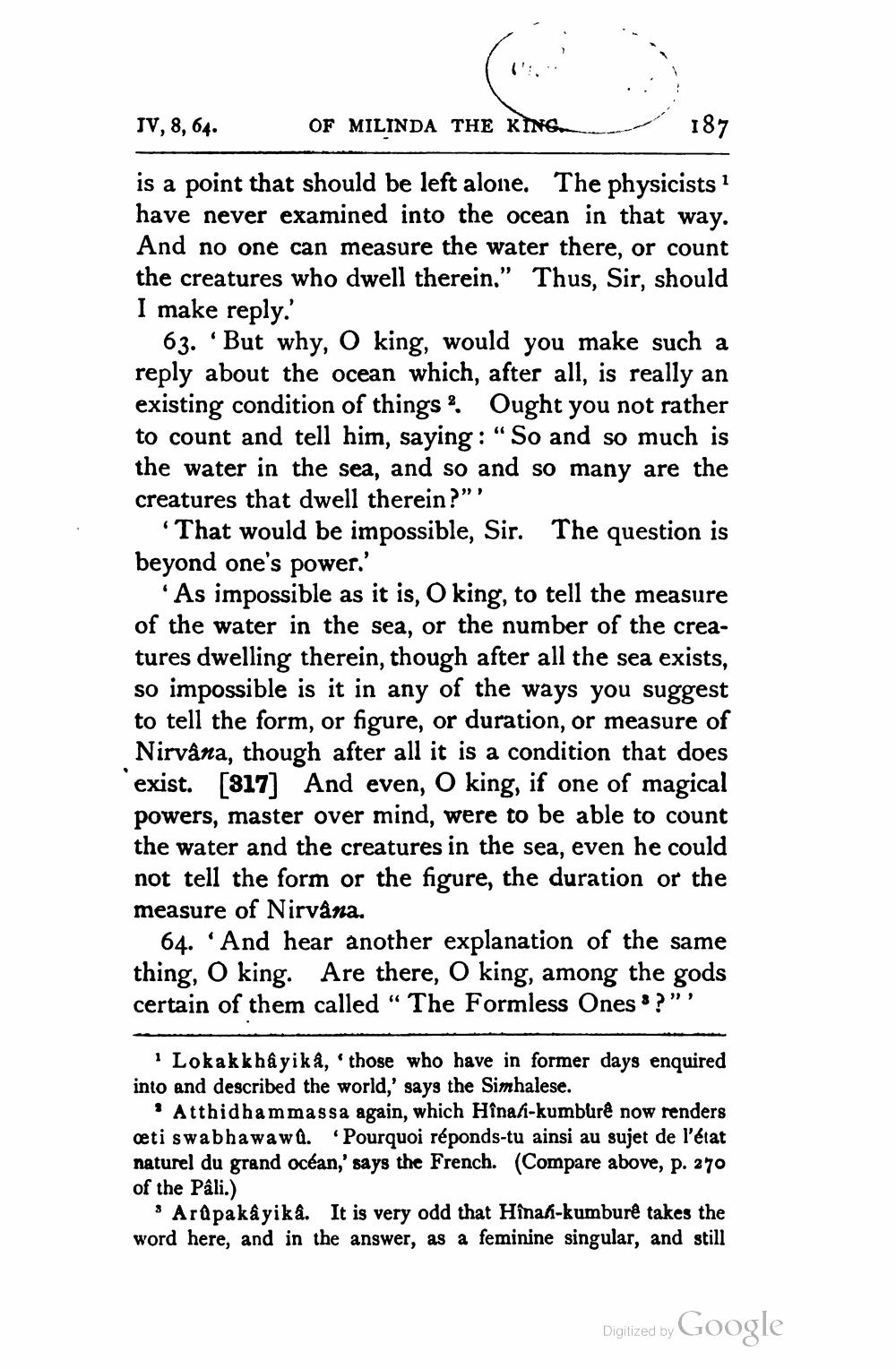________________
JV, 8, 64.
OF MILINDA THE KING
187
is a point that should be left alone. The physicists 1 have never examined into the ocean in that way. And no one can measure the water there, or count the creatures who dwell therein." Thus, Sir, should I make reply
63. 'But why, O king, would you make such a reply about the ocean which, after all, is really an existing condition of things ? Ought you not rather to count and tell him, saying: "So and so much is the water in the sea, and so and so many are the creatures that dwell therein?”
That would be impossible, Sir. The question is beyond one's power.'
As impossible as it is, o king, to tell the measure of the water in the sea, or the number of the creatures dwelling therein, though after all the sea exists, so impossible is it in any of the ways you suggest to tell the form, or figure, or duration, or measure of Nirvana, though after all it is a condition that does exist. [317] And even, O king, if one of magical powers, master over mind, were to be able to count the water and the creatures in the sea, even he could not tell the form or the figure, the duration or the measure of Nirvana.
64. 'And hear another explanation of the same thing, O king. Are there, O king, among the gods certain of them called “The Formless Ones?",
Lokakkhôyika, 'those who have in former days enquired into and described the world,' says the Simhalese.
• Atthidhammassa again, which Hînafi-kumburê now renders ceti swabhawawa. "Pourquoi réponds-tu ainsi au sujet de l'état naturel du grand océan,' says the French. (Compare above, p. 270 of the Pâli.)
9 Arûpakâyika. It is very odd that Hinat-kumburê takes the word here, and in the answer, as a feminine singular, and still
Digitized by Google




